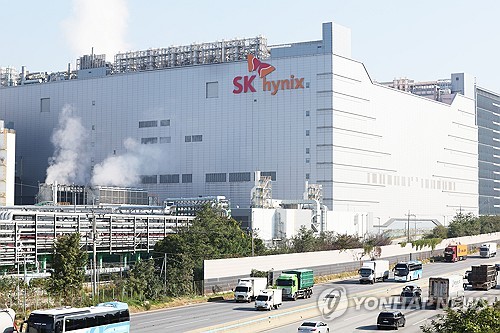(Seoul=Yonhap Infomax) Hak Seong Kim – SK Hynix Inc., South Korea's second-largest chipmaker, should prioritize internal funding sources such as retained earnings, borrowing, and equity issuance to finance large-scale investments, rather than relying on regulatory easing, according to the Economic Reform Alliance.
In a statement released on the 25th, the Economic Reform Alliance said, “Before demanding excessive legal amendments, it is appropriate to first establish funding plans through retained earnings and borrowing. If these are insufficient, the company should raise additional capital through a rights offering.”
The Alliance acknowledged the necessity of expanding semiconductor production capacity but emphasized that the method of securing investment is the core issue.
The Alliance criticized a bill proposed by the Democratic Party of Korea that would lower the required ownership stake of a grandchild company in its great-grandchild subsidiary from the current 100% if the Advanced Strategic Industry Fund invests. The group argued that this approach neglects the critical policy goal of curbing economic concentration.

“Proponents of deregulation are merely seeking ways for Chairman Chey Tae-won to maintain control over SK Hynix while making large-scale investments in AI semiconductors,” the Alliance stated. “To expand, the company inevitably needs to raise capital externally, and it is natural for the controlling shareholder’s stake to be diluted in this process.”
The Alliance added, “As SK Hynix grows, everyone—including Chairman Chey—must accept the dilution of his stake. The inability to do so is at the heart of the problem.”
The Alliance also noted that this is not the first time regulatory changes have been tailored to SK Group, citing the 2014 revision of the Foreign Investment Promotion Act and the 2020 amendment to the Fair Trade Act, South Korea’s antitrust law. The Alliance claimed that the 2014 revision enabled SK Geocentric Co. to form a joint venture with a Japanese firm, while the 2020 Fair Trade Act amendment, which raised the subsidiary ownership requirement for holding companies, included exceptions that benefited SK Group.
Regarding Chairman Chey’s recent comment that he is not seeking relaxation of the separation between industrial and financial capital but rather a new system to support investment, the Alliance said, “It is appropriate to thoroughly review funding plans under the current system, and only if investment difficulties persist should the company seek government cooperation.”
“If SK Hynix pursues investment activation without such efforts, it will be difficult to avoid criticism that the national agenda of boosting AI and semiconductor investment is being used to benefit controlling shareholders,” the Alliance stressed.
The Alliance concluded, “While regulations under the Fair Trade Act are not sacrosanct, the premise that Chairman Chey must control SK Hynix under all circumstances is even less so.”
SK Hynix’s ownership structure is as follows: Chairman Chey Tae-won and related parties (25%) → SK Inc. (32%) → SK Square (20%) → SK Hynix. The company is planning massive investments amid surging demand for AI-driven memory chips.
The Economic Reform Alliance is a civic group established in 2006 after separating from the Economic Reform Center of People’s Solidarity for Participatory Democracy.
hskim@yna.co.kr
(End)
Copyright © Yonhap Infomax Unauthorized reproduction and redistribution prohibited.

